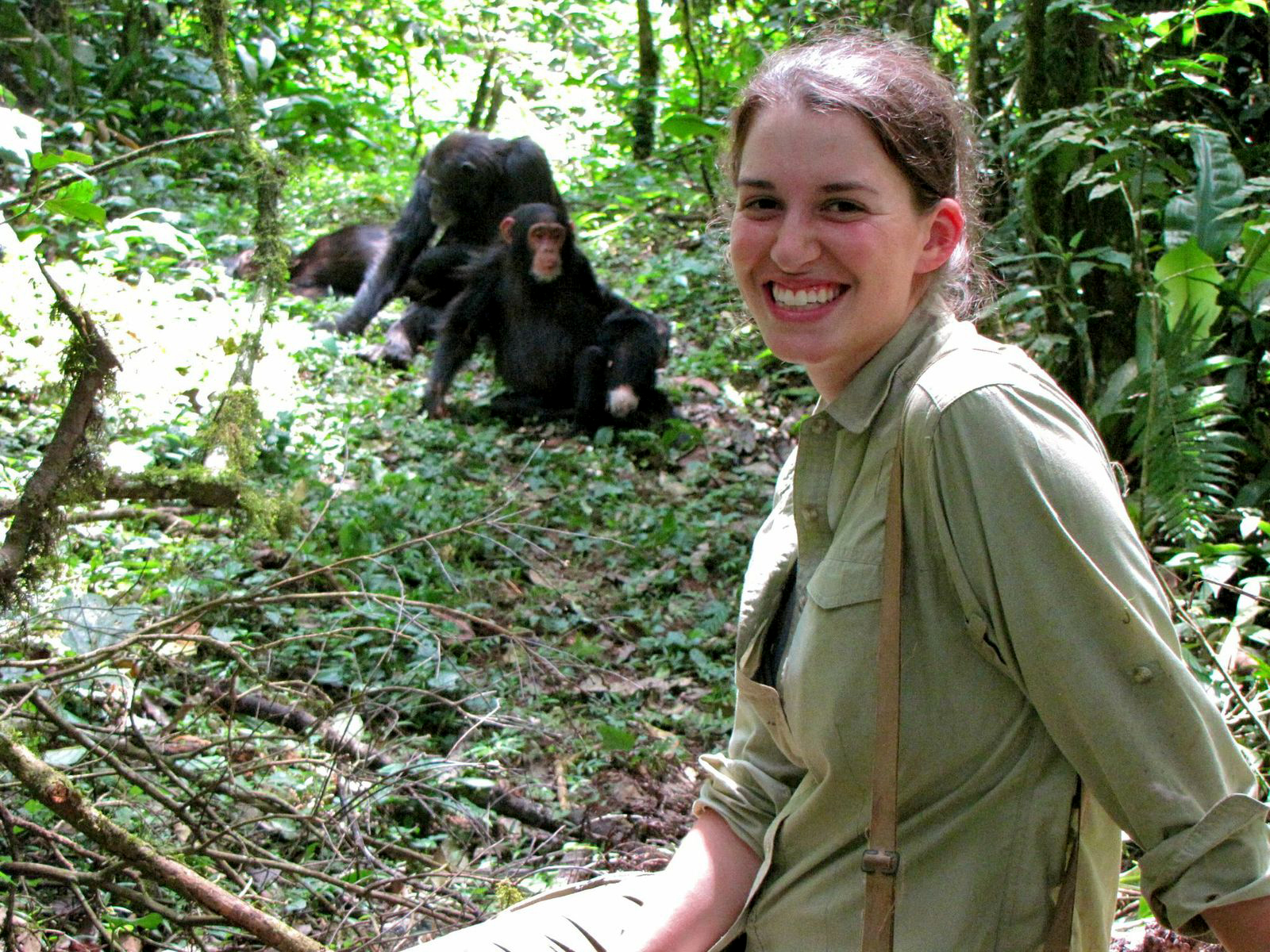Athens, Ga. – Julie Rushmore, a University of Georgia doctoral student, has received the Volterra Award for the Best Student Presentation in Theoretical Ecology from the Ecological Society of America.
Rushmore, who received a Ph.D. from the UGA Odum School of Ecology in 2013 and is pursuing a D.V.M. degree in the UGA College of Veterinary Medicine, won the award for her talk, “Network-based vaccination improves prospects for disease control in wild chimpanzees,” delivered at the 2013 ESA annual meeting in Minneapolis. The award is supported by science publishers Sinauer and Elsevier.
In naming Rushmore the winner, the judges cited the originality of her work, the execution of her talk that made the results easily understandable and her skill in fielding audience questions, according to professor Bruce Kendall of the University of California, Santa Barbara, chair of the ESA Theoretical Ecology Section.
Rushmore presented research findings based on her analysis of the social networks of wild chimpanzees in Uganda. These primates, like many endangered wildlife populations, are at risk from infectious diseases. Even when vaccines for these diseases are available, it is logistically challenging-if not impossible-to vaccinate every member of a wildlife population. Using models to simulate disease outbreaks and different vaccination scenarios, Rushmore and her colleagues found that targeting the most socially connected individuals was far more efficient than random vaccinations in curbing outbreaks, reducing the number of individuals requiring vaccination by up to 35 percent.
John Gittleman, dean of the Odum School, said that Rushmore’s recognition speaks to UGA’s position as a global leader in disease ecology. “UGA students and faculty are making profound advances on where, how and why diseases such as West Nile to Lyme to even unknown infections are emerging,” he said. “Julie’s work on the social context of disease transmission is already setting new standards for not only understanding the processes of disease transmission but, importantly, ways to manage and prevent outbreaks. Julie’s academic career, integrating veterinary and ecological science, is a wonderful example of UGA’s unique position in this field.”
For more information about the Odum School of Ecology, see www.ecology.uga.edu. For more information about the College of Veterinary Medicine, see www.vet.uga.edu.


